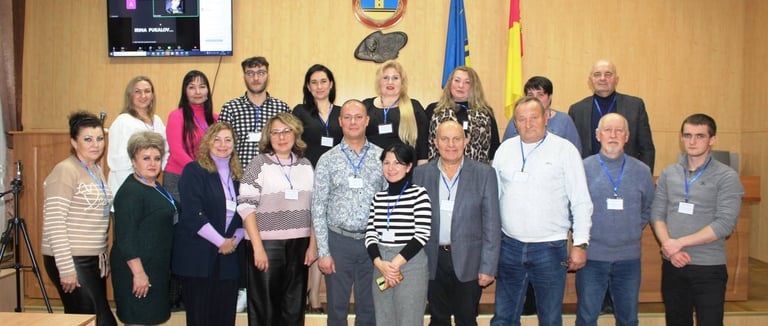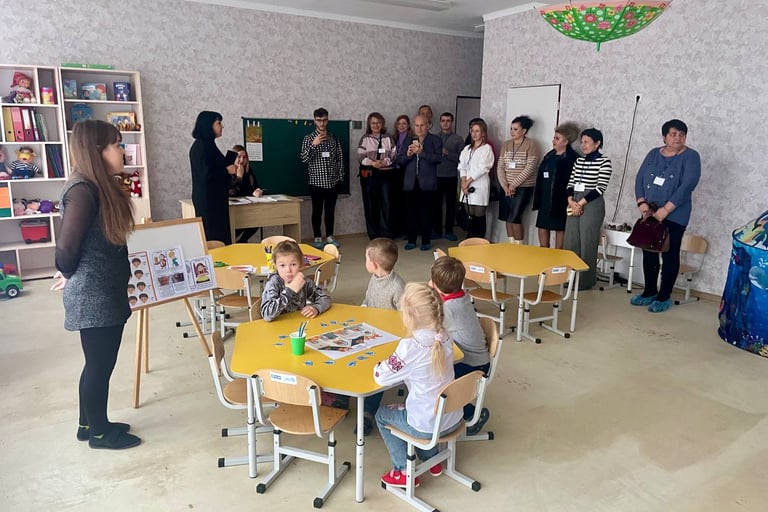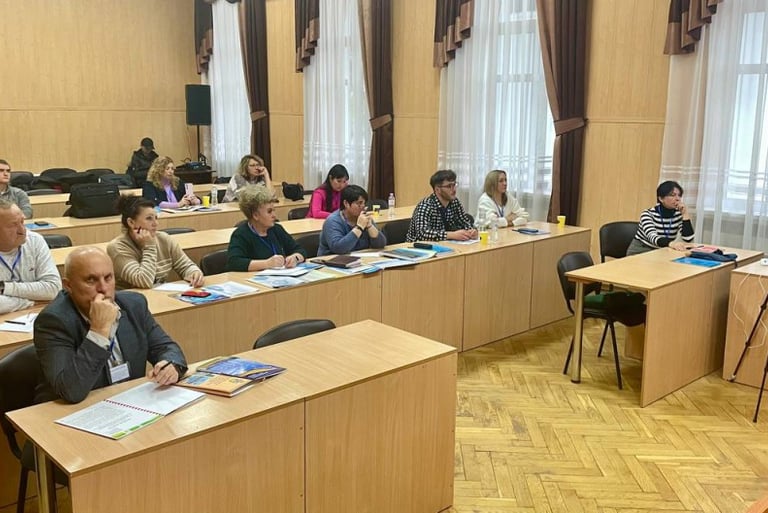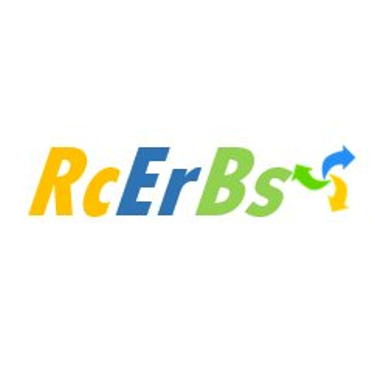How the Experience of the City of Dolynska Unites Communities
12/7/20244 min read


On November 21, the Dolynska community in the Kirovohrad region hosted guests to share its experience in implementing various projects and finding funding for them. The meeting brought together representatives from the Kirovohrad, Dnipropetrovsk, and Odesa regions of Ukraine, civic organizations, and donors. This event was part of a study tour organized by the PARASOL project.
Our Mission: A Community of Happy People
Reconstruction in Ukraine is a widely discussed topic, both nationally and internationally. While it is often perceived as a future endeavor requiring significant investments, the small, active, and creative Dolynska community is already taking action. It is securing funding for development, implementing bold ideas, and rebuilding its infrastructure. Residents of Dolynska dream of living in a truly European city and are willing to invest in their future.
The true inspiration behind the community is its leader, Yevhen Zvizdovskyi, who describes the mission as creating a "community of happy people" with a focus on the future and the younger generation.
“Our municipal territorial community turned 4 years old on November 27. For nearly three of those years, like many communities in Ukraine, we have faced constant threats from Russian aggression,” said Yevhen Zvizdovskyi. “Every day, we work to support internally displaced persons from Kherson, Donetsk, and other regions. Our current goals are to mobilize internal financial and human resources and only then attract external ones. We are open to dialogue with investors, donors, and philanthropists, aiming to achieve the best results in all our initiatives.”
Over the past four years, the Dolynska community has achieved notable success. It has transitioned several large "long-term" projects from state to municipal ownership, developed a development plan, and completed numerous projects, such as:
Housing restoration: 150 apartments have been allocated to the families of fallen heroes, with plans for another 350.
Water supply: A community-built water pipeline now serves over 10,000 residents, along with 5 public water stations.
Emergency medical care: Over 8,000 calls have been serviced by the newly established unit.
Church construction: A new church of the Ukrainian Orthodox Church was built in Dolynska.
Sports infrastructure: Restoration work is nearing completion on a sports palace covering about 3,000 square meters.
Small Communities’ Success as the Foundation for Ukraine’s Recovery
The Dolynska community eagerly shares its experiences with others. During the study tour, participants learned about projects in energy efficiency and conservation, solar and wind energy development, and housing restoration. They also visited renovated facilities for children and youth, such as sports and dance spaces.
Participants gained insights into Dolynska's success in attracting foreign investments for renewable energy projects. These initiatives are particularly important during wartime, as they contribute to energy decentralization and independence from major suppliers.
Yevhen Zvizdovskyi also shared plans for the future, which include attracting businesses, creating new enterprises, developing electric public transport, improving waste management, and enhancing water supply and sewage systems.
Building a Strong Foundation for Ukraine’s Recovery
Ruslan Shcherbakov, President of the "Regional Center for Economic Research and Business Support" Foundation, praised the creativity of Ukrainian communities during wartime.
“Our organization systematically studies community experiences and promotes best practices. We see how Ukrainian communities, despite the war, are implementing innovative solutions in energy efficiency, renewable energy, and social infrastructure,” he said.
He emphasized that the collaboration of communities, civic organizations, and donors is key to successful development projects. He proposed creating a platform for experience exchange, investment attraction, and joint project implementation to foster the recovery and growth of communities.
This local-level determination lays a robust foundation for Ukraine’s national recovery.
Perspectives from the Dolynska Study Tour Participants
Another participant of the study tour, Maria Lukyanova, an expert in greening investments from Ecoaction/Bankwatch, shared her thoughts:
“I am impressed by the leadership approaches in Dolynska to mobilize internal community resources and adopt unconventional solutions based on existing opportunities within the national legal framework. These study tours are extremely important for inspiring communities to address their local challenges and, most importantly, for fostering networking among them. During our first trip, communities identified shared needs for their future development and are now ready to work together to find funding. Strengthening the capacities of small communities through joint project development and implementation, in collaboration with civil society organizations, can be a successful strategy for attracting donors.”
Olena Vusyk, Head of the NGO "Center for International Cooperation and Project Implementation," highlighted the constant need for expert, technical, and financial assistance to local communities:
“Military threats and destruction in communities only amplify this need. Communities are also responsible for accommodating internally displaced persons and creating conditions for their temporary housing and support. On one hand, proactive communities actively seek such assistance. On the other hand, international donors and investors, even amid active hostilities, are willing to provide financial and technical support. Therefore, our goal is to build bridges between communities, donors, and the public, uniting them for the joint implementation of projects and green recovery initiatives.”
Collaborative Goals for the Future
At the conclusion of the tour, all participating communities, along with civic organizations and donors, expressed their willingness and readiness to jointly seek funding. They aim to secure support from sources such as the World Bank, Japanese companies, and donors to implement a package of shared projects and initiatives by 2025.
This publication is part of the project "Study Tour to the City of Dolynska, Kirovohrad Region, under the PARASOL Project," implemented by partner organizations – the Regional Center for Economic Research and Business Support Foundation and the Center for International Cooperation and Project Implementation – with support from the Bankwatch Network.




